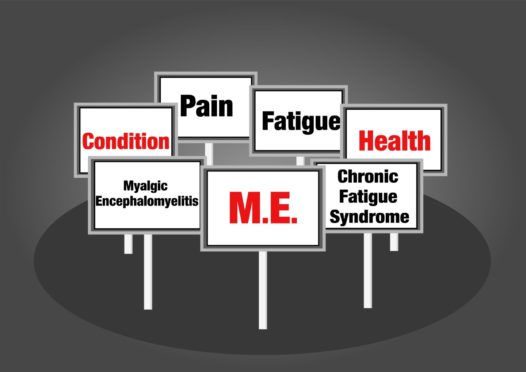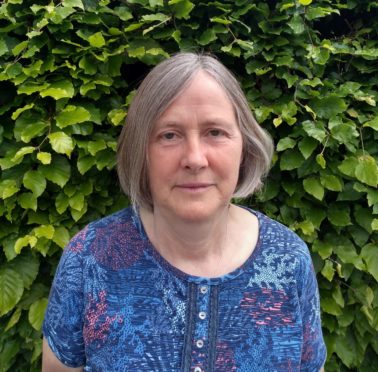Campaigners are calling on the Scottish Government to provide better help for people suffering with a chronic condition.
More than 20,000 people in Scotland are living with myalgic encephalomyelitis (ME) which is often diagnosed following an infection, such as glandular fever.
The lives of people who’ve previously been healthy and active can often be left devastated following a diagnosis.
Yet little is known about the cause of ME, which is also known as chronic fatigue syndrome (CFS), or the best treatment for the condition.
Time for change
The campaign group #MEAction Scotland has now written to the Scottish Government calling for “urgent action” to be taken.
One of its volunteers, Helen McDade, said: “#MEAction Scotland is seeking urgent action from the Health Secretary, Humza Yousaf.
“People with ME are still routinely stigmatised and ignored by the medical and social care services.
“There is only one specialist nurse and no medical specialists in Scotland.
“Three Scottish Government reports since 2002 have acknowledged this situation and recommended actions to remedy the situation.
“Almost none of these actions have been taken. The Covid pandemic is no excuse for delay.”
Public Health Scotland recently carried out an assessment of patient needs and the report was published in December last year.
There were 26 recommendations, highlighting the need for health boards to develop a service with “supported care and treatment” with a specialist team put in place for patients.
It’s also recommended that a dedicated helpline and website is set up to support people with ME and their carers.
Helen has now called for the health secretary to take on these recommendations.
Two north-east residents are among those whose lives have been changed after falling ill with ME.
‘You get a diagnosis and then you’re left with it’
Mia Grainger, 17, of Aberdeen, has a dream of working as a nurse but is struggling to keep up with her college studies due to the illness.
At times she is left confined to her bed with extreme tiredness and pain in her knees and ankles.
Mia said: “At first I really struggled with it, I pushed myself because I didn’t want to accept that it got to me.
“Last year I was really down and didn’t leave my room for months.
“It’s difficult to accept because you want to do things but you can’t.”
Mia was diagnosed in 2016 when she was in Primary 7 at Kingswells Primary School and had to give up her place on the Scottish gymnastics squad because she was ill.
Her mum Jo, 43, said her daughter was initially referred to a physiotherapist for treatment but it left her feeling worse.
She said: “Over the past few years she has been in a wheelchair, she has been back and fore to the hospital and they always tell us there’s nothing we can do.
“We were just hoping for some support and a glimmer of hope.
“If she gets any infections such as the cold it can leave her in bed for weeks. She’s missed out on a lot.”
Another sufferer, 45-year-old Amanda Stephen was diagnosed with ME when she was 19.
Amanda, of Aberdeen, said: “When you come to your GP there is no help or assistance. You get a diagnosis and then you’re left with it.
“There’s nowhere to refer you to so effectively the doctor doesn’t know what to do so there is no treatment plan.”

The charity worker eventually managed to get referred to a specialist clinic in Essex and made the 1,100 mile round trip for advice.
She learned a technique known as “pacing” which encourages a balance of rest and activity to help manage the fatigue.
She added: “Luckily I have improved but I am only working two days a week.
“There should be local clinics, especially for newly-diagnosed people because the sooner they are told about pacing, the less severe their illness is and the less likely they will be to relapse and they will have a better quality of life.”
Treatment ‘a matter of urgency’
An NHS Grampian spokeswoman said: “We are aware the pathways and treatment options for people with ME/CFS require further development. We are looking at this as a matter of urgency.”
A Scottish Government spokesman said: “We are committed to ensuring everyone living with ME/CFS in Scotland is able to access the best possible care and support.
“We are actively working with stakeholders to ensure this by investing in research, gaining greater understanding what good care looks like from a lived experience perspective, and focusing on raising awareness with the development of training materials for healthcare professionals.
“We recently commissioned a healthcare needs assessment and are working with partners to review what care and support is available and needed for ME/CFS in Scotland, taking account of the recommendations in that report and the final NICE guideline on ME/CFS when it is published in August.”

